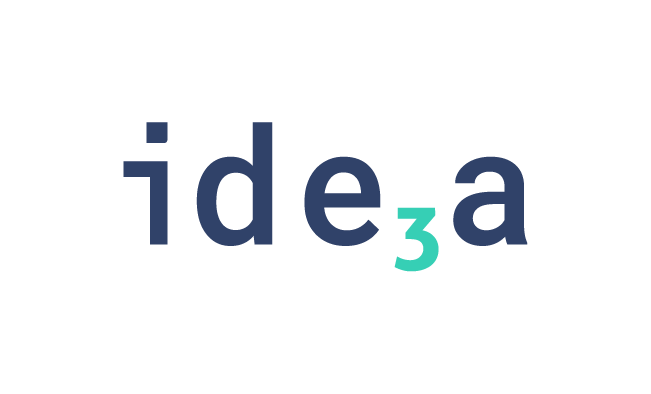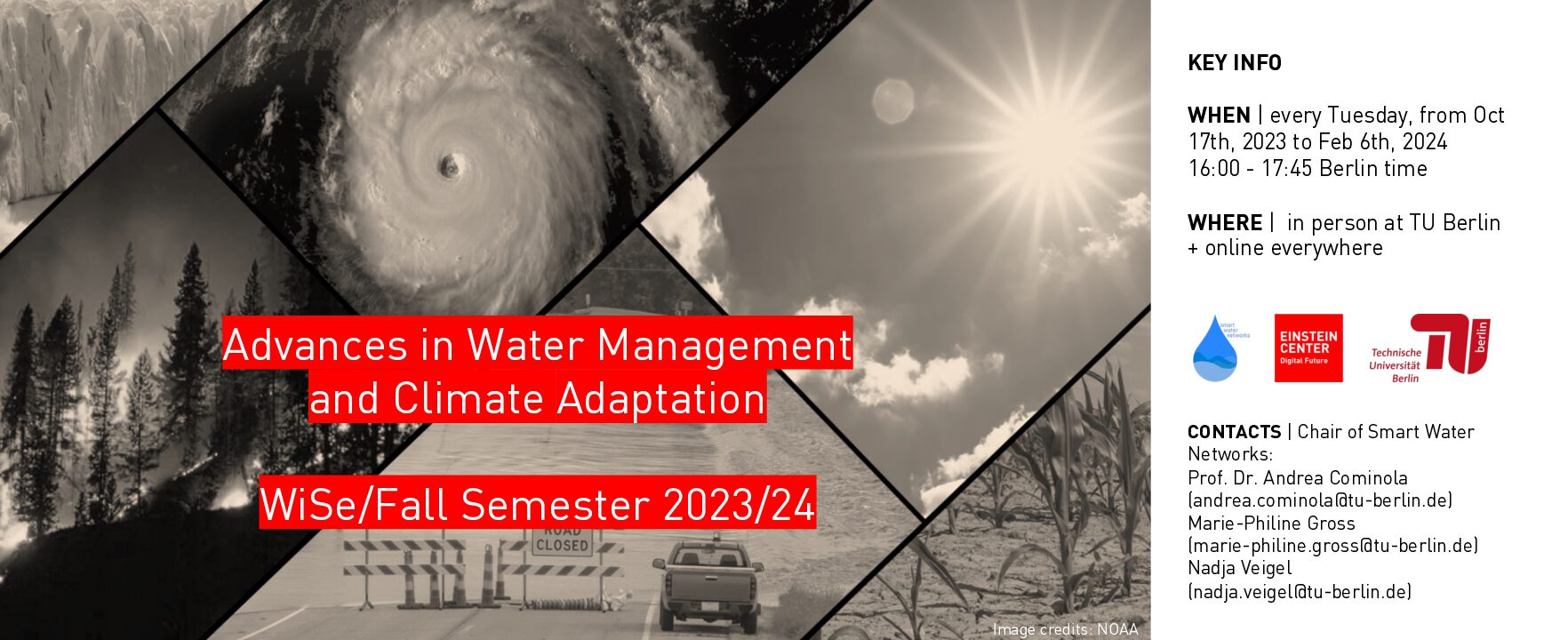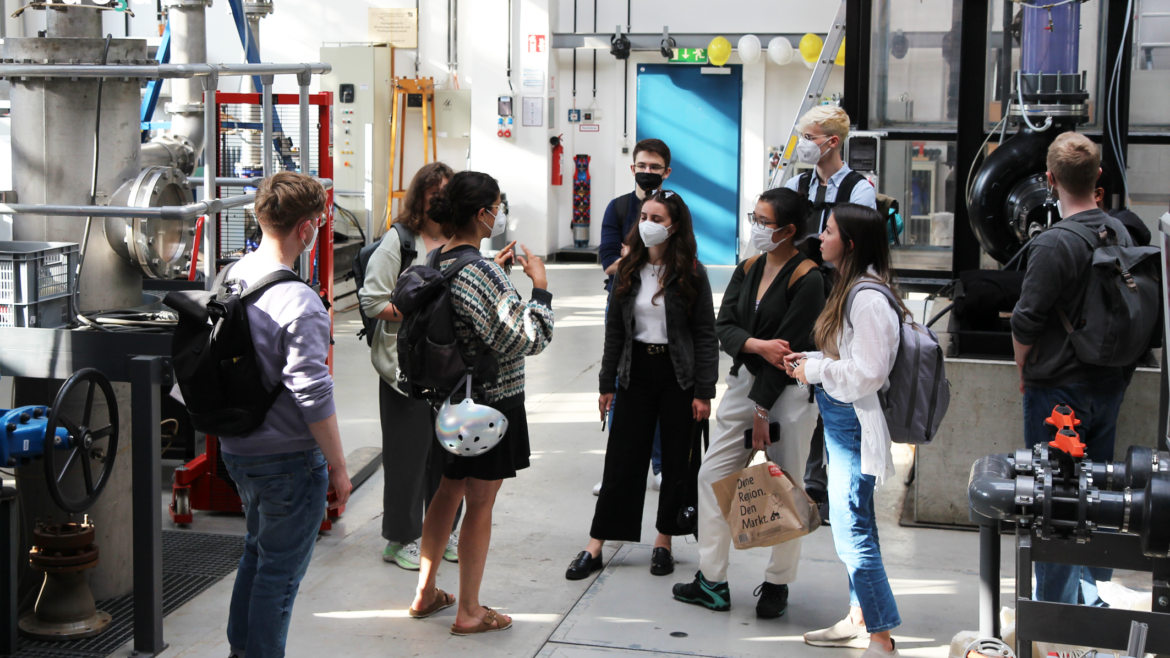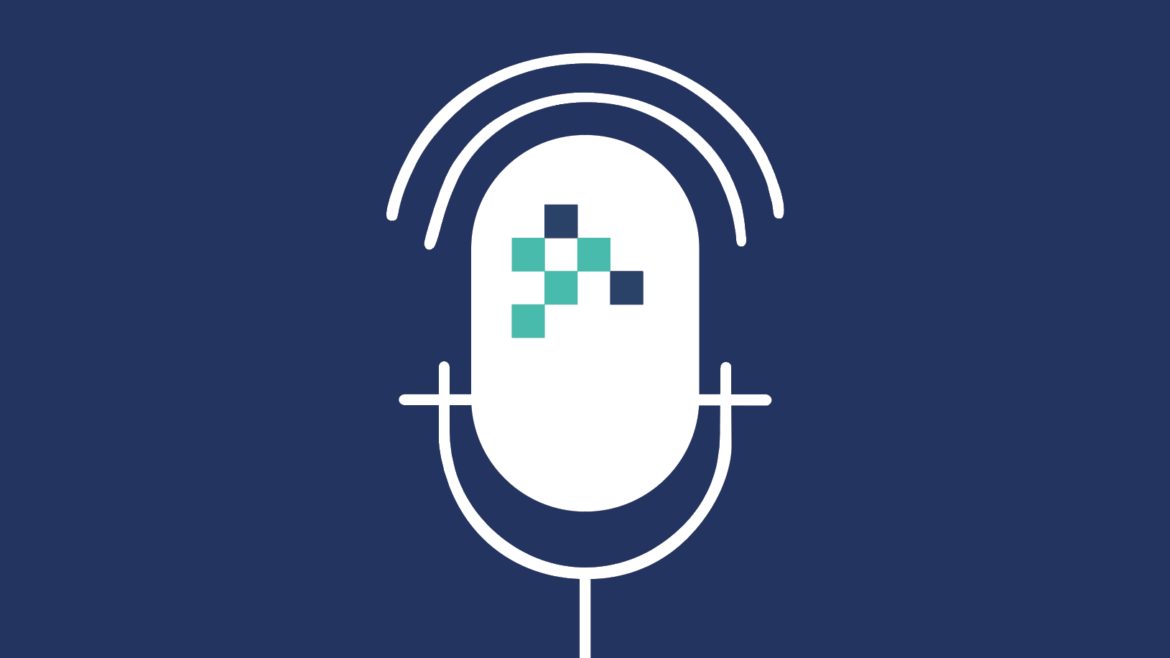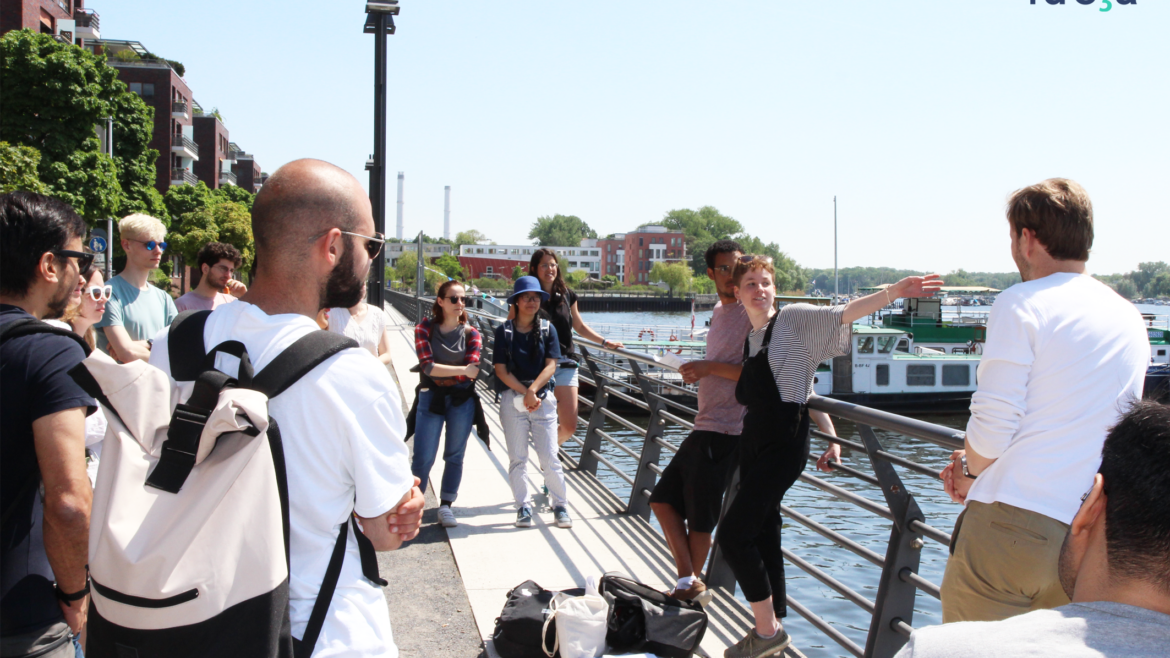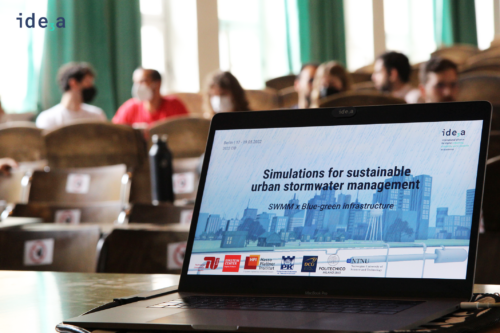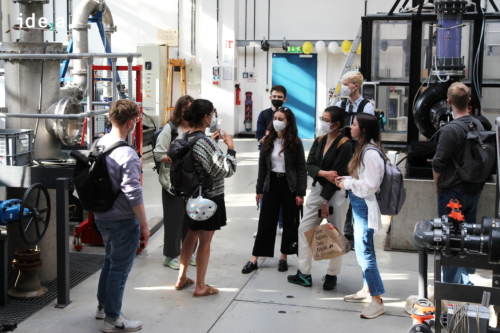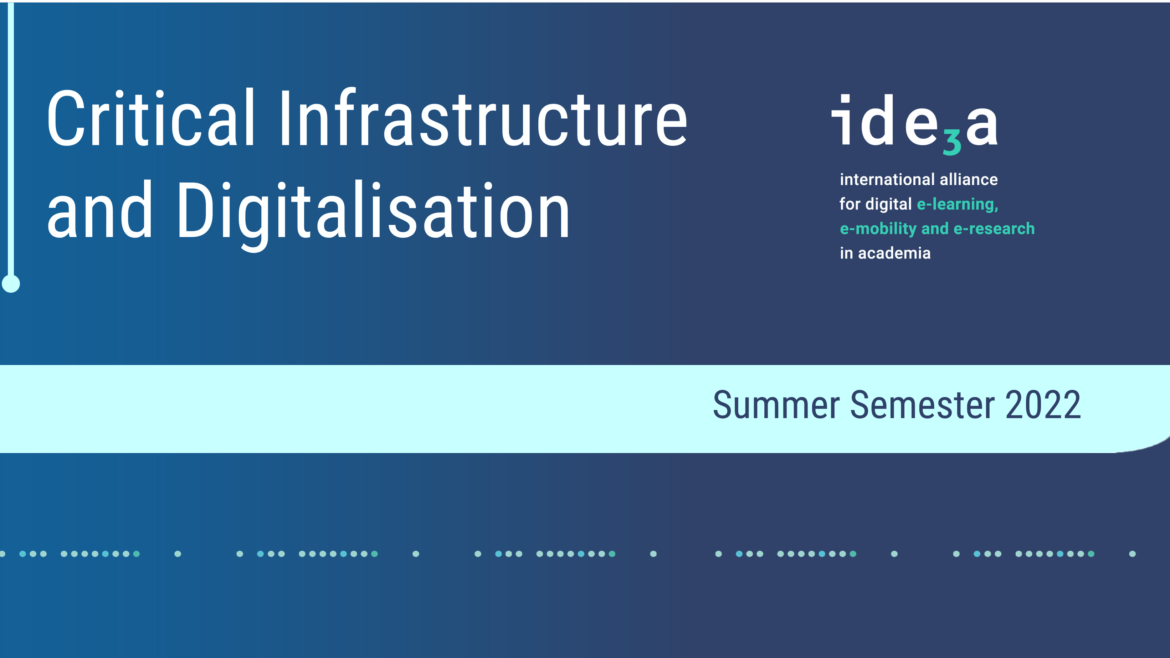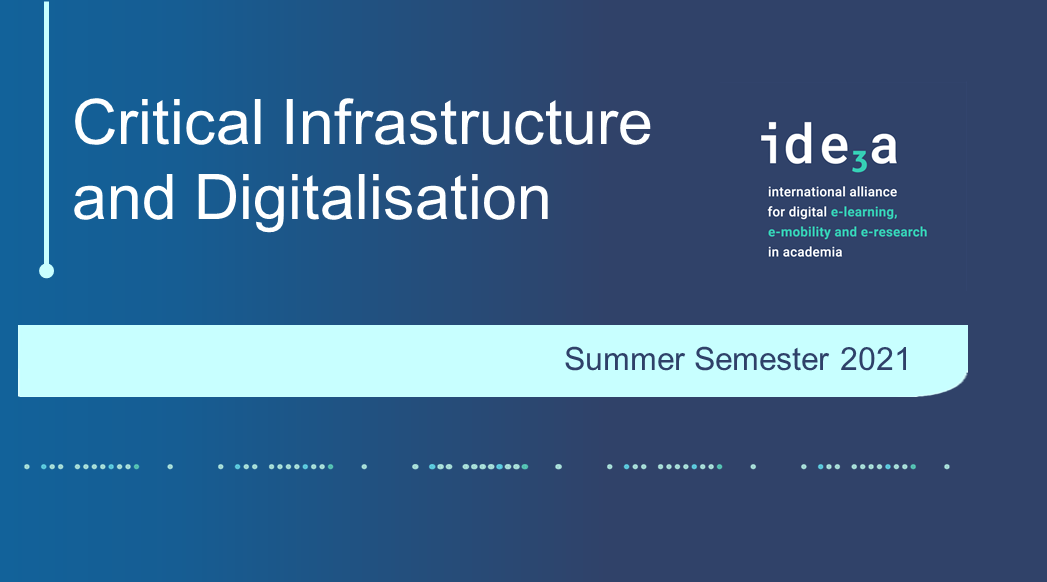While the ide3a project has concluded, the Smart Water Networks department of TU Berlin is continuing education in the thematic realm of ide3a, as exemplified by the lecture series titled “Advances in Water Management and Climate Adaptation.” This course is scheduled every Tuesday from October 17th, 2023, to February 6th, 2024, taking place in person at TU Berlin and being streamed online, guest speakers will be either in person or connected online.
The lecture series on “Advances in Water Management and Climate Adaptation” is a comprehensive course designed to explore the latest techniques, tools, technologies, strategies, and policies in managing water resources and adapting to the challenges posed by climate change. Tools and technologies will include, among others, advanced modelling techniques, digital technologies, remote sensing, geographic information systems. Water management and climate adaptation strategies and policies will unpack the intertwined relationship between environmental, technological, societal, and economic stakes, and include topics related to climate justice, multi-objective optimization, risk and conflict management, and multi-sector dynamics under uncertainty.
Following an introductory session, different early-stage researchers from international universities, research institutions, technology centers, and policy institutes will present cutting edge research, projects, lessons learned, challenges and visions on water resources management and climate adaptation. Each lecture will have an approximate duration of one hour, followed by interactive discussions involving attending students and the lecturer.
Assessment includes weekly quizzes based on the lecture content and a concise final report focusing on one of the topics covered in the lecture series.
While a background in topics related to water resources management, hydrology, hydraulics, environmental systems analysis, or related fields is recommended, it is not a strict requirement for participation. Participants will earn 3 ECTS credits for their engagement in this course.
We extend a warm welcome to external participants, for details follow the link below.
